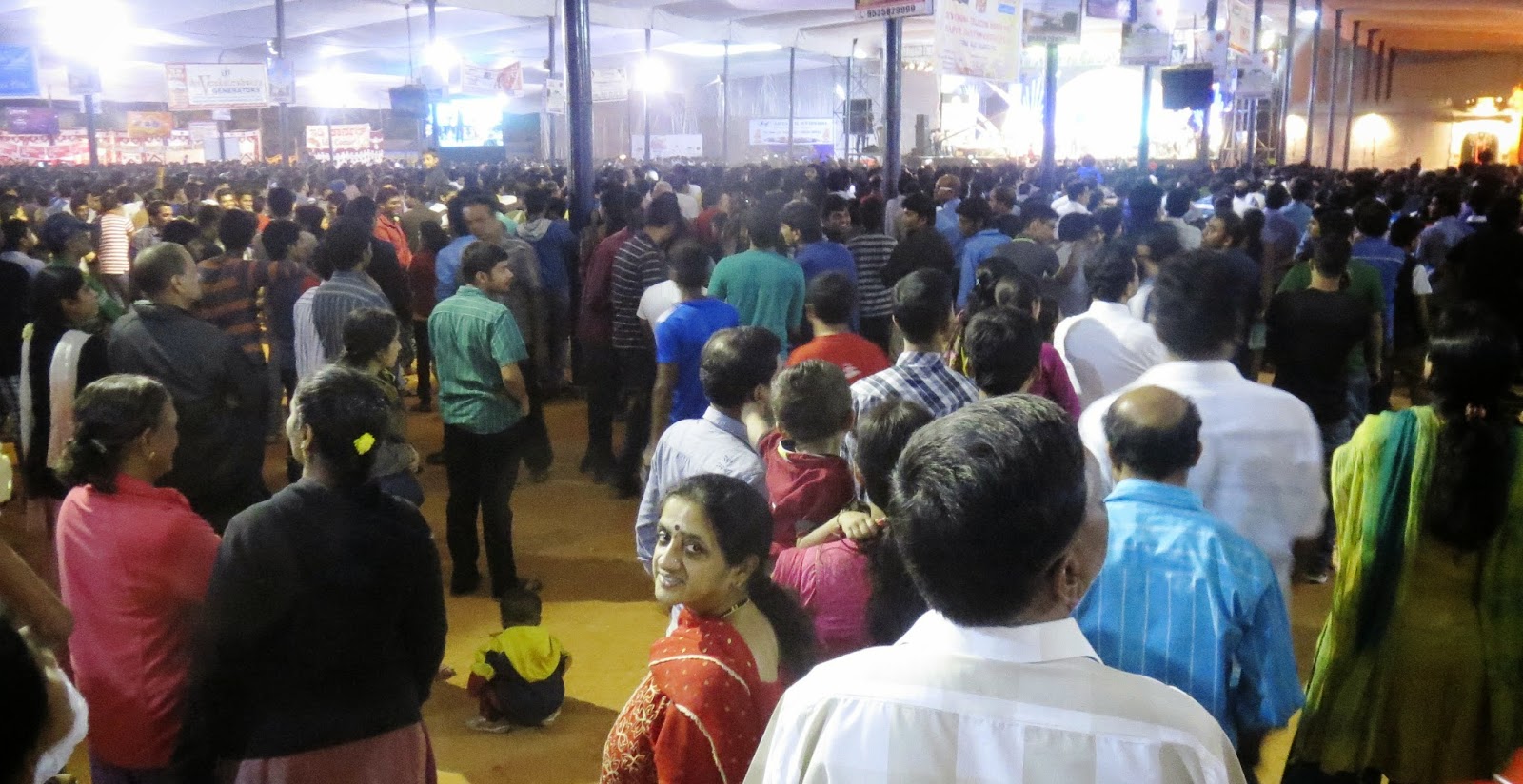Ganesh Festival is celebrated with all pomp and enthusiasm throughout the country, specially in Bangalore. Ganesha festival invites lot of celebrities to attend and give performance of music, dance for public entertainment. One such place we attended was at Acharya Pathashala at Basavanagudi, Bengaluru, where a huge Ganesha idol was placed and a huge place with shamiyana for people to enjoy the entertainment. The day we visited was a performance by Vijay Prakash, singer with orchestra.....
At our area, Bhuvaneshwari Nagar, there a huge Ganesha idol placed near the park by the public and kept for three days and submerged in water at the end of three days....
 |
| Singer Vijay Prakash |
Ganesha Chaturthi or Ganesha Festival is a day on which Lord Ganesha, the son of Shiva and Parvati, resurrected to life on earth with the head of elephant. It is celebrated as it is the birthday of Lord Ganesha.. It is also known as Vinayaka Chaturthi or Vinayaka Chavithi
This festival is observed in the lunar month of bhadrapada (a Hindu month), shukla paksha chathurthi (fourth day of the waxing moon period), madhyahana vyapini purvaviddha. Typically, the day falls sometime between August and September . The festival lasts for 10 days, ending on Ananta Chaturdashi.
Ganesha, the elephant-headed son of Shiva and Parvati, is the supreme god of knowledge, wisdom, prosperity and good fortune. He is the Lord who is first worshipped before any holy occasion or puja.
Lord Vinayaka is revered as the preserver of all good things and prevents Vigna (meaning obstruction/bad omen). His motto is Shubh-Laabh (good prospect and good prosperity).
Significance of Ganesha Festival
According to the Holy Hindu scriptures, Lord Ganesha or Ganapati (the names mean “Lord of Ganas”, Ganas are the worshipers of Lord Shiva. According to the legend, Lord Shiva, the Hindu God of resolution, was away at a war. Pavarti, his wife wanted to bathe. She had no one to guard the door to her house, she conceived of the idea of creating a son who could guard her. Parvati created Ganesha out of the sandalwood paste that she used for her bath and breathed life into the figure. She then set him to stand guard at her door and instructed him not to let anyone enter. In the meantime, Lord Shiva returned from the battle.Ganesha and Shiva did not know each other. Ganesha stopped Shiva from entering Parvati’s chamber. Shiva, enraged by Ganesh’s impudence, took his trident (Trishul) and cut off Ganesha’s head. Pavarti emerged to find Ganesha decapitated and flew into a rage. She took on the form of the Goddess Kali and threatened destruction to the three worlds of Heaven, Earth and the subterranean earth.
Fearing the inevitable, the other Gods implore Shiva to pacify Parvati. Shiva sent out his ganas, or hordes, to bring the head of the first living being with his head towards the north (the auspicious direction associated with wisdom). They came across was an elephant. So they brought the head of this elephant and Shiva placed it on the trunk of Parvati’s son and breathed life into him. Parvati was overjoyed and embraced her son, the elephant-headed boy whom Shiva named Ganesha, the lord of his ganas.
written Thursday 11 Sept 2014


No comments:
Post a Comment